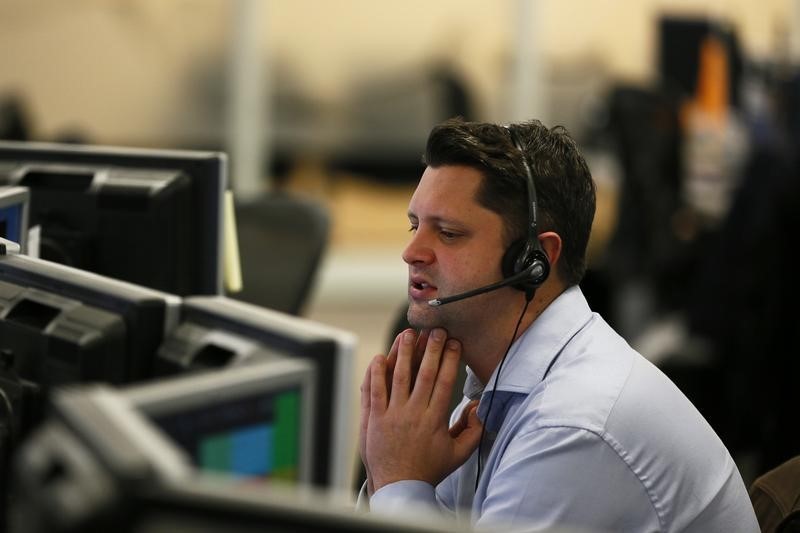This post was originally published on this site
https://i-invdn-com.akamaized.net/news/LYNXNPEC0Q0MJ_M.jpg
Options and futures on indexes and equities are scheduled to expire, a quarterly event known as quadruple witching that typically fuels trading as large derivatives positions roll over. While spikes in volume usually occur around the open and close, providing windows of robust liquidity, large price swings can happen suddenly at any time of the day.
The event is getting more attention than usual because options activity from small investors and the so-called Nasdaq whale have been blamed for whipping up turbulence in internet and software shares. Despite an 11% drop in the Nasdaq 100 from its Sept. 2 peak, open interest on bullish contracts tied to the gauge remains elevated. So was volume in calls linked to shares of tech titans like Apple Inc (NASDAQ:AAPL). and Facebook Inc (NASDAQ:FB).
“If you’re heavily long tech, the quadruple witching is going to be a real fireworks show,” Michael Antonelli, managing director and market strategist at Baird, said in a Bloomberg Television interview with Alix Steel. “There is going to be a lot of action.”
Quadruple witching can spark some of the busiest trading days of the year. The last event in June saw more than 16 billion shares changing hands, 30% above the average in the previous three months.
The expiration event usually coincides with a rebalancing of major indexes such as the S&P 500 and can spark some of the busiest trading days of the year.This time, index rebalancing alone could force $32.4 billion of trades, S&P Dow Jones estimated.
“When you have those expirations, you typically get some more volatility,” said Jerry Braakman, chief investment officer of First American Trust in Santa Ana, California. “People need to figure out what to do with them, clear out those positions off their books and potentially re-up for other ones.
About 90 million option contracts are set to expire Friday, according to data compiled by Chris Murphy, a derivatives strategist at Susquehanna. While the amount is up from a year ago, it trails the June expiration by roughly 10%.
One reason behind the shortfall is the robust use of short-dated options, especially calls sought by day traders to chase market winners, Murphy said. Because these options expire within days or weeks, few are left for quadruple witching.
Options contracts with maturities less than two weeks out comprised 75% of all trades in July, a record high, according to data compiled by Goldman Sachs Group Inc (NYSE:GS).
Another unusual feature this time around is the popularity of single-stock options, particularly bullish wagers, as investors chase stock winners, rather than hedging against broad market losses. At the start of September, single stock call option volumes averaged $335 billion over 10 days, approaching the notional volume traded in index put options for the first time in at least three years, Goldman data shows.
That preference is likely to shift in coming months amid macro risks ranging from the U.S. presidential election to the path of economic reopening and trade tensions with China, according to David Silber, head of institutional equity derivatives at Citadel Securities.
“There will be an increase in index activity into year-end as people migrate out of single stock risks and focus more on the macro environment and the many events before then,” Silber said. “We can see another large expiration in Q4 closer to the size we saw in Q1, when there was a large demand for March options given the macro uncertainty around Covid.”

